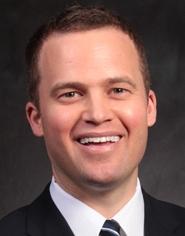Event
 (Self-)Disciplining the Corporation: FCPA Practice, Compliance, and Global Anti-Corruption Regimes in China
(Self-)Disciplining the Corporation: FCPA Practice, Compliance, and Global Anti-Corruption Regimes in China
Matt Erie, Associate Professor of Modern Chinese Studies, University of Oxford

An expansive literature examines the question of norm diffusion and legal transplantation, particularly in regards to democracy, transparency, and human rights, in the developing world, and, especially, China. To the extent that such analyses consider human actors, these are usually public interest lawyers, NGOs, and advocacy groups. Corporate lawyers offer a different view of the interface between foreign (e.g., U.S.) law and PRC law—and with different effects. Cross-border lawyers assess multiple sets of rules to advise their clients on local standards of behavior. While they localize norms, they do not replace them; rather they weigh different standards to opine on best practices. This paper, based on the author’s legal practice as well as on interviews with corporate lawyers in China, focuses on the case of anti-corruption compliance, one of the fastest growing areas of legal practice in China. Specifically, cross-border lawyers analyze anti-corruption norms across two dynamic regimes: the U.S. Foreign Corrupt Practices Act, an extra-territorial statute passed by Congress in 1977 to curb the bribery of foreign officials by U.S. companies abroad, and China’s anti-corruption drive, started in 2012 to remove corrupt members from the Chinese Communist Party. This paper argues that to understand the interaction between norms across jurisdictions, we must attend to the micro-practices of bi-cultural lawyers in China, in this case, those who conduct internal investigations of U.S. clients in an environment of arbitrary regulation. Doing so demonstrates that the “rules of the game” are intimately linked to those who enforce norms. This is especially so in the field of compliance where the user-end customer (pre-emptively) enforces the law. An ethnography of compliance as practices of self-discipline sheds light on the situated logics of lawyering, just as lawyers are embedded in broader contours of market pressures, political campaigns, and U.S.-China relations which condition their logics.
Matthew Erie is Associate Professor of Modern Chinese Studies at the University of Oxford. He is a comparative lawyer (Penn Law JD ’08; Tsinghua Law LLM ’08) and a cultural anthropologist (Cornell PhD) whose research engages multiple disciplines to examine the ways in which non-state authorities, particularly those not bound within or categorized by the jurisdiction of the modern state, shape individuals’ behavior and notions of property, rights, and community. Matthew has gained experience in China over the last twelve years as a law student, an NGO volunteer, a corporate lawyer, and an ethnographer. He spent two years living with Muslim communities in northwest China, fieldwork that formed the basis of his book, China and Islam: The Prophet, the Party, and Law (Cambridge University Press, 2016), the first ethnographic study of the contemporary practice of Islamic law among Chinese Muslims. His next project studies the interaction between transnational legal norms and Chinese law in the context of “out-bound China,” with particular reference to anti-corruption, counter-terrorism, and religious policy. Before Oxford, he practiced law in Beijing and New York City, and held academic positions at New York University School of Law and Princeton University. He has published in such journals as American Ethnologist, Law & Social Inquiry, Hong Kong Law Journal, and the Journal of Legal Education.
